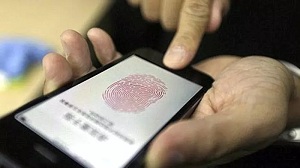The survey of 12,000 people in 11 countries found that less than half (46 per cent) trusted fingerprint recognition to replace their traditional password, in spite of the benefits it offers in security and convenience. However, people in the UK were keener to embrace new biometric technology in banking. The report said: “When it comes to biometrics . . . the UK is very willing to adopt certain measures.” It found that UK consumers were the most open to replacing traditional passwords with iris identification, for example. Biometrics came under scrutiny after HSBC’s voice recognition technology was compromised by a twin mimicking his brother’s voice to access his account, as per a BBC report.
From finger vein scanning to iris recognition and selfies, banks around the world are pushing ahead with biometric security in an attempt to improve customer service and mitigate the risk of data and money theft. Yet despite banks’ efforts to roll out biometric authentication, many customers neither understand nor trust in the new technologies, according to a new global report by HSBC. A number of banks in the UK have rolled out biometric technology in the past two years for both customer authentication and banking services. Santander UK, for example, launched a service this year that allows customers to make payments by asking their iPhone to do it for them. The global report also found that cyber security was of paramount importance to UK consumers, who ranked the highest for taking day-to-day measures to ensure their personal data were safe. Concerns over cyber security have intensified following the global ransomware attack dubbed WannaCry, which temporarily brought parts of the NHS to a halt. Mr Maguire said: “Whether it’s ransomware, or denial of service attacks . . . all continue to increase in size, scope and sophistication.” Some 87 per cent of respondents globally felt the security of their finances was as important as the protection of their personal data. The global survey also revealed that twice as many people — 14 per cent — would trust a robot to perform heart surgery than to open a bank savings account for them.








